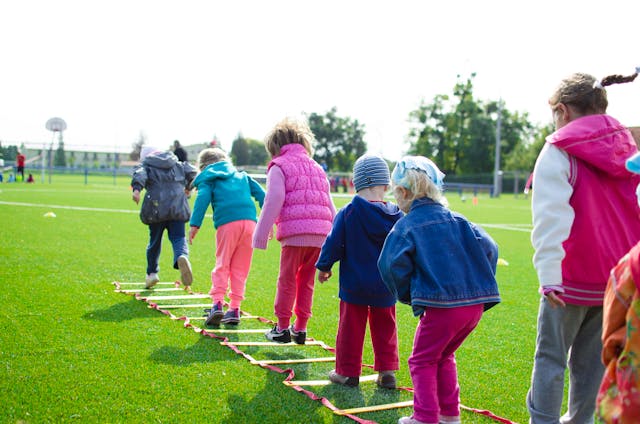Have you ever asked yourself, “How to Live a Fulfilling Life?” It’s like that moment when you’re sipping your morning coffee, staring out the window, and suddenly life’s big questions appear. You are not alone on this quest.
In today’s fast-paced world, finding true fulfillment can feel like searching for a needle in a haystack. However, what if the “needle” wasn’t as elusive as we thought? What if the essence of a fulfilling life is woven into the fabric of our daily experiences and decisions?
Once, in a quaint little cafe, I overheard a conversation that has stayed with me ever since. A woman with a sparkle in her eyes asked her friend, “Fulfillment?” Every day is like starting with a blank canvas and creating a masterpiece.”
This simple yet profound insight is what we’re going to look into. So, let us embark on this journey together, discovering how to live a life full of purpose, connection, and joy.

I. Understanding the Essentials of a Fulfilling Life
Setting out on the quest for fulfillment is both exhilarating and intimidating, full of discoveries, challenges, and the pursuit of something meaningful in our lives. Let’s delve deeper into what it truly means to live a fulfilling life, the challenges we may face, and the fundamental principles that guide us to flourish.
Definitions and Perspectives on Fulfillment
A fulfilling life is the result of experiences, accomplishments, and emotions that together create a sense of wholeness and satisfaction. It is deeply personal and subjective, with significant differences between individuals.
Some people find fulfillment by pursuing their passions, while others find it in the strength of their relationships or the impact they have on the world. Fulfilment in life is deeply personal experience that gives meaning and purpose to each individual who experiences it.
Common Obstacles and Misconceptions
The path to fulfillment is frequently fraught with challenges, both internal and external. One common misconception is that fulfillment is a destination, a fixed state to be reached.
This mindset can lead to the “I’ll be happy when…” trap, in which happiness is always postponed to the future, contingent on reaching certain milestones.
Another impediment is societal pressure to conform to a universally accepted standard of success, which can divert our attention away from our true desires and leave us feeling empty and unfulfilled.
Foundational Principles for Flourishing
To navigate these challenges, consider these fundamental principles as your compass:
- Self-awareness: Understanding your values, strengths, and aspirations is critical. It involves asking yourself, “What truly matters to me?” This introspection is the first step toward living your life in accordance with your personal definition of fulfillment.
- Gratitude: Practicing gratitude shifts our focus away from what we lack and toward what we have. It promotes a sense of abundance and helps us appreciate the beauty in the ordinary, resulting in increased feelings of fulfillment.
- Flexibility: Life is unpredictable. Embracing flexibility enables us to adapt to changing circumstances and find fulfillment in the journey rather than just the destination.
- Connection: We are inherently social beings. Cultivating deep, meaningful relationships enriches our lives by offering comfort, joy, and a sense of belonging.
- Purpose: Engaging in activities that align with our sense of purpose can give our lives meaning. Purposeful action, whether in our careers, hobbies, or service to others, is a key component of fulfillment.
Understanding the nuances of fulfillment, recognizing common obstacles, and adhering to these fundamental principles pave the way for a life that is not only lived but truly cherished.
Let us continue to investigate how we can foster personal growth, mindfulness, and well-being on our path to a fulfilling life.
Read: Why is Self Care Important?
II. Cultivating Personal Growth and Self-Discovery

Personal development and self-discovery lay the groundwork for a fulfilling life. It’s a path that invites us to look inward, gain a deep understanding of ourselves, and cultivate the qualities that will allow us to navigate the world with wisdom and grace.
Benefits of Introspection and Self-Reflection
Introspection and self-reflection are mirrors that allow us to see the contours of our inner landscape. This practice provides numerous advantages, including increased self-awareness, the ability to make more aligned decisions, and the ability to learn from our experiences.
Regular self-reflection allows us to identify patterns in our thoughts and behaviours, recognize our strengths and areas for improvement, and clarify our values and aspirations. It’s like having a personal road map that directs us toward more authentic and fulfilling lifestyle choices.
Techniques for Enhanced Emotional Intelligence
Emotional intelligence (EI) is the ability to navigate our own emotions and those of others with empathy, understanding, and tact. Improving emotional intelligence is critical for developing healthy relationships, achieving personal and professional success, and cultivating a sense of well-being.
Here are a few techniques for increasing your emotional intelligence:
- Mindful Observation: Pay attention to your emotions without passing judgment. Practice noticing how they appear in your body and what causes them.
- Practice empathy by attempting to see situations through the eyes of others. This can help you improve your relationships and become more emotionally aware.
- Response Over Reaction: When confronted with emotional situations, take a moment to breathe and choose your response rather than reacting impulsively.
- Seek Feedback: On a regular basis, ask trusted friends or colleagues for feedback on your emotional interactions. This can provide valuable information about areas for improvement.
Building a Stronger Sense of Identity
A strong sense of identity allows one to confidently proceed through life. Self-identity develops over time, through experiences and reflections and results in a thorough understanding of oneself.
Consider the following practices to strengthen your sense of identity.
- Engage in diverse experiences: Exposure to various activities, cultures, and ideas can broaden your perspective on life and help you identify what resonates with you.
- Journaling: Writing down your thoughts, feelings, and experiences can be an effective tool for self-discovery and self-affirmation.
- Set Personal Goals: Setting and achieving goals that are consistent with your values and interests can boost your sense of self-efficacy.
- Practice self-compassion: Treat yourself with compassion and understanding, especially during difficult times. This promotes a positive relationship with oneself and strengthens self-identity.
By committing to personal growth and self-discovery, we not only improve our own lives, but also the lives of those around us. We lay the groundwork for a life full of depth, purpose, and fulfillment by engaging in introspection, cultivating emotional intelligence, and developing a strong sense of self.
Read: Self-Esteem vs Self-Confidence
III. Mastering Mindfulness and Present Moment Awareness
Cultivating mindfulness as part of our daily practice gives us opportunities to truly appreciate the things in life that may go unnoticed or ignored.
Mastering mindfulness and present moment awareness invites us to engage more deeply with life, enriching our experiences and improving our overall well-being. Let’s look at the fundamentals of mindfulness, try some simple exercises, and think about how we can incorporate it into our daily lives.
Fundamentals of Mindfulness and Its Applications
Mindfulness is the practice of paying attention to the present moment with openness, curiosity, and nonjudgment. It’s about taking life as it comes, moment by moment, with a gentle acceptance of whatever happens.
This simple yet profound practice has its roots in ancient traditions but its applications are extremely relevant in the modern world. Mindfulness can help with stress reduction, emotional regulation, concentration, and overall well-being. Whether it’s navigating work challenges, building relationships, or simply enjoying a quiet moment, mindfulness allows us to connect deeply with our experiences.
Simple Exercises for Practicing Mindfulness
Mindfulness practice does not require any special equipment or a lot of time. Here are some basic exercises to get you started:
- Mindful Breathing: Spend a few minutes each day focusing solely on your breath. Observe the sensation of air entering and exiting your body, the rise and fall of your chest, and the rhythm of your breathing. This practice can help you focus your mind and return to the present moment.
- Mindful Walking: Make a routine walk into a mindfulness exercise by focusing on the sensations of walking. Consider how your feet feel with each step, the sounds around you, and the movement of your body. This can transform a simple activity into a rich, in-the-moment experience.
- Mindful Eating: Pay full attention to your meal or snack. Consider the colours, textures, smells, and flavours of your food. Eating mindfully can help you enjoy your food more and avoid overeating.
Integrating Mindfulness into Daily Routines
Incorporating mindfulness into your daily life doesn’t have to be complicated. Here are a few tips:
- Start Your Day Mindfully: Begin each day with a mindfulness exercise above, such as mindful breathing or setting an intention for the day. This sets a tone of presence and awareness for your activities.
- Mindful Reminders: Set reminders on your phone or computer to pause and take a few mindful breaths throughout the day. This can help break the cycle of automatic, habitual actions and thoughts.
- Mindful Listening: Practice fully listening to others without planning your response while they’re speaking. This not only enhances your relationships but also cultivates a deeper sense of presence.
- Mindful Appreciation: Take a moment each day to appreciate something simple—a tree, a work of art, or a pleasant sound. This practice can open your eyes to the beauty of the present moment.
By embracing mindfulness and present moment awareness, we unlock a more vibrant, connected, and fulfilling way of living. As we weave mindfulness into the fabric of our daily lives, we discover the richness that each moment holds and the profound peace that comes from truly being present.
Read: The Hidden Costs of Lack of Self Awareness
IV. Optimizing Physical and Mental Wellbeing

The importance of balancing physical and mental well-being in living a fulfilling life cannot be overstated. Just as a garden thrives with care and nourishment, so does our well-being when supported by healthy habits and lifestyles.
This section discusses the importance of wellness in our lives, provides practical tips for nourishing our bodies and minds, and suggests ways to manage stress and embrace relaxation.
Importance of Healthy Habits and Lifestyles
The principles of health and wellness serve as the foundation for a fulfilling life. Healthy habits not only improve our physical health, but they also have a significant impact on our mental and emotional well-being.
Regular physical activity, balanced nutrition, adequate sleep, and stress management are all necessary components that work together to improve our quality of life. These practices increase our energy, improve mood and cognitive function, and lower our risk of chronic diseases, allowing us to fully engage with the world around us.
Tips for Better Nutrition, Exercise, and Rest
Nutrition: A balanced diet is essential for maintaining good health. Include a variety of whole foods in your meals, such as fruits, vegetables, lean proteins, whole grains, and healthy fats. Staying hydrated and adopting mindful eating habits can also improve your nutritional health.
Exercise: Regular physical activity is essential for good health. Aim for at least 150 minutes of moderate aerobic activity or 75 minutes of vigorous activity per week, plus muscle-strengthening exercises on two or more days. Stay motivated by engaging in activities you enjoy, such as walking, cycling, yoga, or team sports.
Rest: Getting enough sleep is critical for physical health, mental clarity, and emotional stability. To improve the quality of your sleep, set a regular sleep schedule, create a restful environment, and develop a relaxing bedtime routine. Remember that rest includes taking breaks and giving yourself time to recharge throughout the day.
Managing Stress and Promoting Relaxation
Stress is an unavoidable part of life, but managing it is essential for maintaining mental health and overall well-being. Mindfulness meditation, deep breathing exercises, and progressive muscle relaxation are all stress-reduction techniques that can help calm the mind and body. Hobbies, nature walks, and spending time with loved ones can all help to relieve stress.
Furthermore, maintaining a positive attitude and practicing gratitude can help you change your perspective and reduce stress. Remember, it’s critical to know when to seek professional help if stress becomes overwhelming.
Prioritizing healthy habits, embracing nutrition, exercise, and rest, and effectively managing stress all pave the way for optimal physical and mental well-being. This holistic approach to health not only enriches our lives, but also enables us to reach our full potential, encapsulating the essence of a truly fulfilling life.
Read: What Is the Point of Life?
V. Forging Positive Relationships and Connections
The relationships we cultivate along the way enrich our journey toward a fulfilling life. Human connection provides warmth, support, and a sense of belonging, all of which are essential for our well-being.
This section delves into the art of creating genuine and rewarding interactions, honing communication skills for effective bonding, and broadening our circles of support and community.
Elements of Genuine and Rewarding Interactions
Authenticity and mutual respect are fundamental components of meaningful relationships. Genuine interactions are characterized by openness, in which people feel free to express themselves without fear of being judged.
Active listening is important because it allows us to fully engage with the other person’s words, emotions, and experiences, fostering a strong connection. Empathy, or the ability to understand and share the feelings of others, bridges gaps and fosters trust. These elements lay the groundwork for relationships that are not only rewarding, but also nurturing and supportive.
Communication Skills for Effective Bonding
Effective communication is essential for maintaining healthy relationships. It is more than just exchanging information; it is also about comprehending the emotion and intentions underlying the information.
Here are some key skills to improve your communication and bonding:
- Active Listening: Concentrate entirely on the speaker, acknowledging their words and emotions, demonstrating your interest and concern.
- Clear Expression: State your ideas and feelings clearly and respectfully. Use “I” statements to express your viewpoint without assigning blame.
- Nonverbal cues: Be aware that body language, eye contact, and tone of voice can all have a significant impact on how your message is perceived.
- Conflict Resolution: Approach conflicts with a problem-solving mindset, aiming for mutual understanding and respect for each other’s perspectives.
Expanding Circles of Support and Community
Reaching out and connecting with others who share similar values, interests, or experiences is essential for creating a supportive community. Participate in community events, volunteer activities, or groups based on your hobbies or interests. These settings allow you to meet new people and form connections based on common interests.
Online platforms can also be a useful tool for broadening your social circle, particularly if you’re looking for support or connections in specific communities. Remember that the quality of connections is more important than quantity. A few close and supportive relationships can be extremely beneficial.
Building positive relationships and connections is a continuous and dynamic process. It takes patience, effort, and a willingness to be vulnerable.
By cultivating genuine interactions, honing our communication skills, and actively seeking out communities of support, we can create a network of relationships that not only help us through life’s challenges, but also increase our joy and fulfillment along the way.
VI. Pursuing Purpose and Meaningful Endeavors

The desire for a fulfilling life frequently leads us to seek purpose and participate in meaningful activities. Finding and following our purpose gives our lives direction and meaning while also improving our overall well-being.
Processes for Defining Personal Values and Goals
Identifying your personal values and setting goals are critical steps toward determining your purpose. Values are the guiding principles that shape our actions and decisions, whereas goals provide direction and a sense of accomplishment. Here’s how to get started:
- Reflect on What Matters Most: Consider the times when you felt the happiest, proudest, and most fulfilled. What common threads can you see? These insights can help you define your core values.
- Set SMART goals: Set specific, measurable, attainable, relevant, and time-bound goals based on your values. SMART goals provide clarity and a roadmap for your actions. For example; if one of your core values is health, a SMART goal could be “To improve my physical well-being, I will jog for 30 minutes three times per week for the next three months.” This goal is specific (jogging for 30 minutes), measurable (three times per week), achievable (a realistic commitment), relevant (aligned with the value of health), and time-bound (set for the next three months), resulting in a clear target that will guide your actions toward greater fulfillment.
- Regular Review and Adjustment: Life is dynamic, as are our values and goals. Regularly reviewing and adjusting them ensures that they remain consistent with your evolving sense of purpose.
Strategies for Aligning Career and Vocation with Purpose
Aligning your career with your purpose can turn your job into a source of fulfillment. Consider the following strategies:
- Self-Assessment: Assess your skills, interests, and passions. How do they relate to potential career paths or vocations.
- Seek Meaningful Work: Look for roles that align with your values and provide a sense of contribution. Even within your current job, look for projects or roles that are more closely related to your purpose.
- Continuous Learning: Seize opportunities for personal and professional development to get closer to your ideal career. Networking, mentoring, and additional training can provide new opportunities.
Volunteering and Giving Back to the Community
Contributing to the well-being of others is an effective way to discover purpose and fulfillment. Volunteering allows you to connect with your community, leave a positive impact, and feel a sense of belonging and accomplishment.
Here is how you can get involved:
- Identify causes that you are passionate about: Choose volunteer opportunities that reflect your values and interests. This makes your efforts feel worthwhile and rewarding.
- Leverage Your Skills: Contribute your unique skills and knowledge to organizations or causes. This can make your contribution more meaningful and rewarding.
- Explore Diverse Opportunities: There are numerous ways to volunteer, ranging from local community centres to global online platforms. Diversifying your volunteer experiences can improve your life and broaden your horizons.
Pursuing purpose and engaging in meaningful endeavours is a journey that enriches both our own and the lives of those around us. By defining our values and goals, aligning our careers with our purpose, and giving back to our communities, we can leave an impactful legacy and live a fulfilling life.
Read: What is Spiritual Discernment: Navigating Life Decisions with Clarity
VII. Conclusions
To live a fulfilling life is to weave together the threads of self-awareness, health, connection, and purpose, creating a pattern rich with personal meaning and communal significance.
It’s about finding harmony in the pursuit of our goals and the appreciation of the present moment, nurturing our bodies and minds, forging bonds that uplift and support, and engaging in actions that resonate with our deepest values.
But the journey doesn’t end here. Continued learning and growth are essential for maintaining and enhancing our sense of fulfillment. Engage with books, podcasts, workshops, and communities that align with your interests and aspirations.
Seek out mentors and peers who inspire and challenge you. Remember, the pursuit of a fulfilling life is an ongoing process, enriched by curiosity, adaptability, and the willingness to evolve.
It’s also important to set realistic expectations for ourselves and recognize that the path to fulfillment is rarely linear. There will be challenges and setbacks, but each obstacle offers valuable lessons and opportunities for growth.
Celebrate your successes, learn from your experiences, and stay committed to your journey. Persistence, coupled with a compassionate and open heart, will guide you toward a life that not only feels fulfilling but truly is.
May you move forward with confidence, curiosity, and a sense of connectedness to yourself and the world around you. May you learn how to thrive within and find the deep sense of joy and purpose in a fulfilling life.






